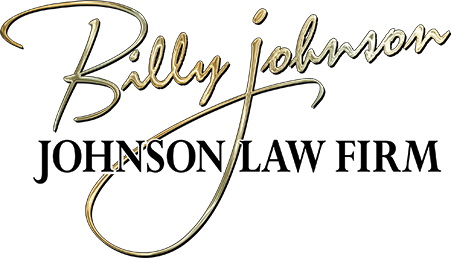Malnutrition
Food, water, oxygen, shelter, and clothing are generally accepted as the most basic physical needs that must be met in order for a person to survive
Ideas about how to best provide these essentials to nursing home residents vary widely, but there are some minimum standards outlined in the Nursing Home Reform Act. Facilities which participate in Medicare and Medicaid jeopardize accreditation if they fail to observe the Act’s requirements. Nursing homes are periodically surveyed for compliance by inspectors. Astonishingly, the first or second most common citation issued each year from 2005 to 2014 was for failure to store, cook, or serve food in a safe and clean way – and that’s just one of the many ways that residents can be harmed by food-related neglect.
The Act has several provisions specifically relating to nutrition and diet. These are some of the more significant requirements of skilled nursing facilities:
- Ensure that a resident maintains acceptable parameters of nutritional status, such as body weight and protein levels.
- Ensure that a resident receives a therapeutic diet when there is a nutritional problem.
- Provide each resident with a nourishing, palatable, well-balanced diet that meets their daily nutritional and special dietary needs.
- Employ a qualified dietitian either full-time, part-time, or on a consultant basis.
- Prepare and follow menus that meet the nutritional needs of residents in accordance with the recommended dietary allowances of the Food and Nutrition Board of the National Research Council, National Academy of Sciences.
- Provide each resident with food that is palatable, attractive, and at the proper temperature.
- Provide at least three meals daily, at regular times comparable to normal mealtimes in the community.
- Provide special eating equipment and utensils for residents who need them.
Making sure that patients receive adequate nutrition and hydration is an essential role for every nursing home.
Failure to provide proper nourishment is not only a violation of the Act, it also constitutes neglect and can lead to serious health problems.
Malnutrition can result from eating an unbalanced diet that lacks adequate vitamins, minerals, proteins, and calories, while dehydration occurs when a person loses more bodily fluids than he or she takes in.
Kentucky law provides that “nursing personnel shall assure that patients are served diets as prescribed. Patients needing help in eating shall be assisted promptly upon receipt of meals. Food and fluid intake of patients shall be observed and deviations from normal shall be reported to the charge nurse. Persistent unresolved problems shall be reported to the physician.”
While malnutrition can stem from not having enough food, the more common causes in nursing homes revolve around not having enough staff. Without enough workers, needy residents do not get the help they need. Some have dental problems that make it hard to chew or swallow; others cannot feed themselves. Complicating matters is the fact that many residents receive a multitude of medications, many of which have unwanted side effects that lead to a decreased appetite or nausea. Wrong serving sizes, food that should be hot being served at cold temperatures, appetite loss and inappropriate feeding tube insertions are all situations that can slip past overworked or unqualified staff, threatening patient health.
According to the American Medical Association (AMA), dehydration is rapid weight loss, defined as in excess of three percent of the victim’s total body weight. As with malnutrition, dehydration frequently results from staff inattention. Many residents are physically unable to get their own drinks and cannot adequately convey their symptoms. Dehydration is a balance that can occur either by fluid loss or by insufficient fluid intake. It can lead to a weakened immune system, ulcers, worsened dementia, bedsores, and electrolyte imbalances.
In fact, without proper hydration and nutrition, many elderly people are unable to fight off infections, which can lead to a variety of other medical issues.
If you trusted a nursing home to care for a family member or loved one, and now suspect that they have suffered an injury or a decline in their condition due to negligence, the Pikeville nutritional neglect attorneys of the Johnson Law Firm can help. It can be hard to accept, but vulnerable seniors are neglected and abused right here in Eastern Kentucky. From his office in Pike County, Attorney Billy Johnson has made it his life’s work to assist people throughout the state and believes that those who cause harm to others should be held accountable for their actions. He has been named a Super Lawyer by U.S. News & World Report as well as an American Trial Lawyers Association Top 100 trial lawyer and he is a proud member of the Million Dollar and Multi-Million Dollar Advocates Forums. Protect your rights by calling us at 606-437-4488 or by filling out our consultation form for a free assessment of your case. You can rely on our experience with the legal system and our commitment to our clients to get you the best result possible under the circumstances.



 William “Billy” Johnson grew up in the Dorton area of Pike County, Kentucky, and early on decided to stay in the beautiful Appalachian mountains. Like many others in Eastern Kentucky, Billy’s dad worked as a coal miner, a hard job but one that taught his son how to meet challenges head on and persevere. Attorney Billy Johnson has years of experience helping injured clients with claims such as car, truck, and motorcycle accidents, wrongful deaths, work injuries, and more. [
William “Billy” Johnson grew up in the Dorton area of Pike County, Kentucky, and early on decided to stay in the beautiful Appalachian mountains. Like many others in Eastern Kentucky, Billy’s dad worked as a coal miner, a hard job but one that taught his son how to meet challenges head on and persevere. Attorney Billy Johnson has years of experience helping injured clients with claims such as car, truck, and motorcycle accidents, wrongful deaths, work injuries, and more. [ 



